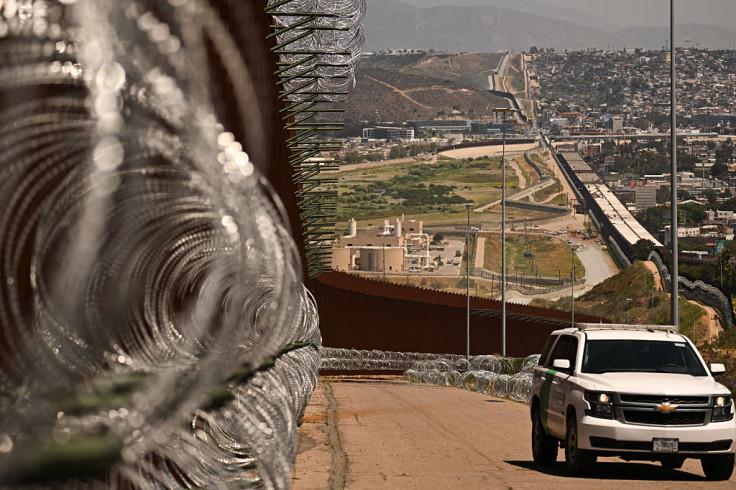
Upon returning to office, President Donald Trump declared a state of emergency on the southern border, sending thousands of troops to the region to prevent migrants from entering the country unlawfully through Mexico. Six months later, as the Trump administration continues cracking down on immigration, those troops are reporting little to no activity in what was once a hub for migrants to enter the U.S.
This Tuesday, an Army infantry unit in Nogales, Ariz. spotted only two people attempting to cross the border while they were patrolling the sector.
"Deterrence is actually boring," 24-year-old Army Sgt. Ana Harker-Molina told The Associated Press, voicing the tedium felt by some fellow soldiers over the sporadic sightings.
Still, she said that she takes pride in her work, as the mere presence of the Armed Forces discourages people from crossing the border unauthorized.
"Just if we're sitting here watching the border, it's helping our country," said Harker-Molina, an immigrant herself who came from Panama at age 12 and became a U.S. citizen two years ago while serving in the Army.
Since January, U.S. troop deployments have tripled to 7,600 and include every branch of the military— even as the number of attempted illegal crossings plummet and Trump has authorized funding for an additional 3,000 Border Patrol agents, offering $10,000 signing and retention bonuses.
But deployments are not the only way in which the Trump administration is investing in border security. In fact, in Arizona's Huachuca Mountains, a new command center at a remote Army intelligence training base is being established, transforming a community hall into a war room of battalion commanders and staff with digital maps pinpointing military camps and movements along the nearly 2,000-mile border.
The increased military presence has essentially turned large swaths of the border into militarized zones, empowering U.S. troops to apprehend immigrants and others accused of trespassing on Army, Air Force and Navy bases, and authorizing additional criminal charges that can mean prison time, The Associated Press reports.
The Trump administration has used military deployment continuously across the country as a tactic to advance its immigration agenda. They have also used it to suppress protests in Los Angeles over Immigration and Customs Enforcement (ICE) detentions, to assist ICE in Florida, to hold detained migrants on military bases in New Jersey, Indiana and Texas, and more.
"It's all part of the same strategy that is a very muscular, robust, intimidating, aggressive response to this— to show his base that he was serious about a campaign promise to fix immigration," said Dan Maurer, a law professor at Ohio Northern University and a retired U.S. Army judge advocate officer.
"It's both norm-breaking and unusual. It puts the military in a very awkward position."
Reactions to increased militarized presence have been mixed in border towns across different states. For instance, in New Mexico, where the Defense Department increased its militarized zone in late June, residents report a plethora of emotion at seeing their home town become a hotspot for law enforcement.
"We as a family have always been very supportive of the mission, and very supportive of border security," said James Johnson, a fourth-generation farmer overseeing seasonal laborers as they filled giant plastic crates with onions, earning $22 per container.
Military deployments under prior presidents put "eyes and ears" on the border, Johnson said. This version is "trying to give some teeth."
But some hunters and hikers fear they're being locked out of a rugged and cherished landscape.
"I don't want to go down with my hunting rifle and all of a sudden somebody rolls up on me and says that I'm in a military zone," said Ray Trejo, a coordinator for the New Mexico Wildlife Federation and a Luna County commissioner. "I don't know if these folks have been taught to deescalate situations."
© 2025 Latin Times. All rights reserved. Do not reproduce without permission.








